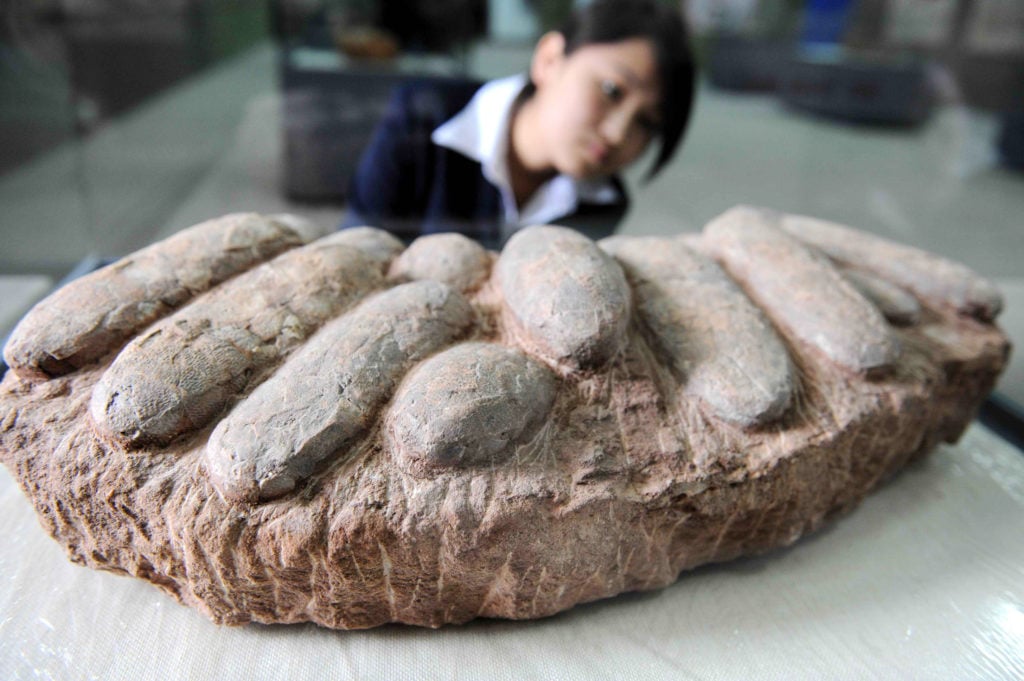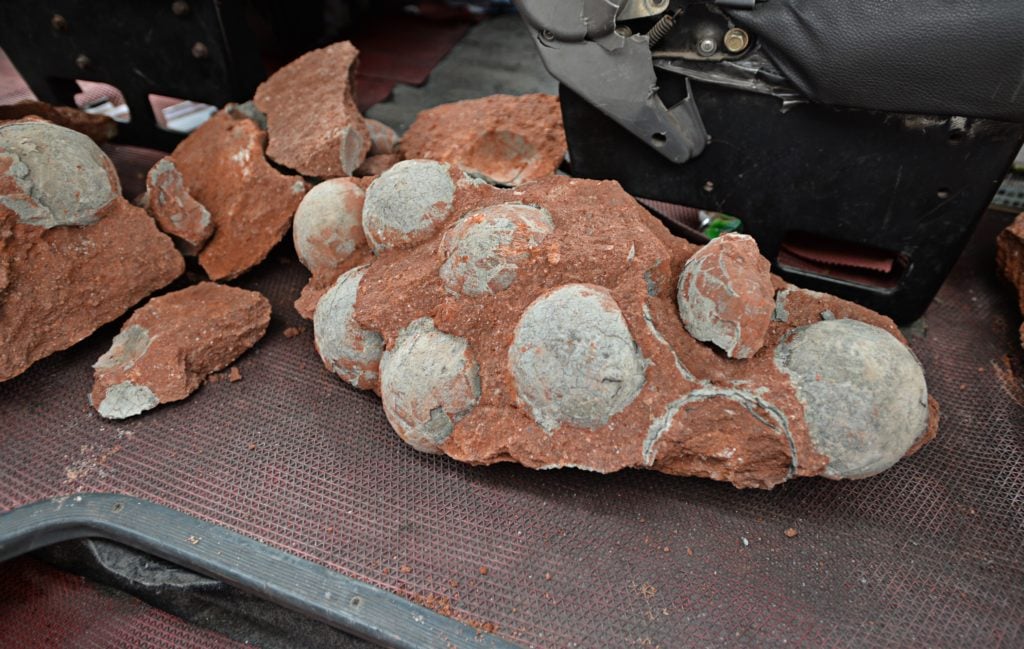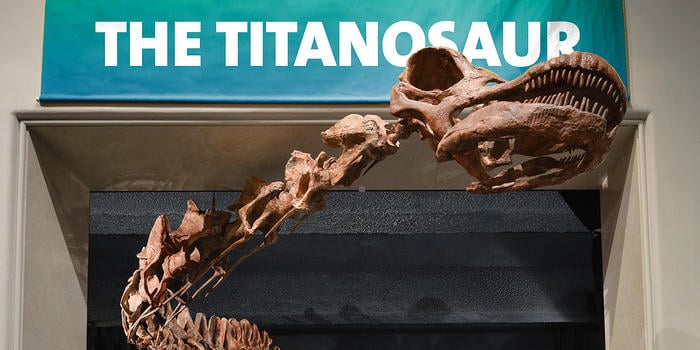Art World
Dinosaur Egg-Stealing Spree Leads to Arrests in China
The whereabouts of most of the eggs, however, remain unknown.

The whereabouts of most of the eggs, however, remain unknown.

Sarah Cascone

Four men are under arrest in China on suspicion of having stolen dozens of fossilized dinosaur eggs, reports Agence France Presse. Police have recovered 27 of the 80 precious eggs, which belong to a collector in eastern Zhejiang province. The other missing fossils remain at large.
The theft took place on January 9, and the suspect, who has only been identified by his surname, Wang, was arrested on March 4 in Heilongjiang province. Three men believed to have been Wang’s accomplices were also apprehended. Police suspect that the thieves divided the cache of eggs between them.
The recovered eggs were found at Wang’s home.
According to police, Wang broke into the egg collector’s home after visiting him twice, ostensibly about possibly purchasing some of the fossils.

This picture taken on April 19, 2015, shows some of the dinosaur egg fossils found on a construction site in Heyuan, south China’s Guangdong province. He Yuan, the Chinese city that holds the world record for largest number of dinosaur eggs has added to its collection after dozens more were unearthed at a construction site, state media reported. Courtesy of STR/AFP/Getty Images.
China is a veritable gold mine of dinosaur fossils. South of Zhejiang, in Guandong province’s Heyuan city, some 17,000 dinosaur eggs have been unearthed since 1996, leading it to have the nickname “Home of Dinosaurs.” Construction workers discovered a nest of 43 fossilized eggs in the city center in 2015.
The prevalence of such archaeological finds in the region has led to widespread smuggling of dinosaur fossils from both China and Mongolia. To take just one notable example, in December 2015, actor Nicolas Cage voluntarily returned a Tyrannosaurus bataar skull to authorities after he learned it had been illegally smuggled out of Mongolia, which outlawed the export of dinosaur fossils in 1924. Thankfully, anti-smuggling efforts led by the government have gone a long way toward protecting that country’s paleontological history.

The Titanosaur at the American Museum of Natural History. Courtesy of the American Museum of Natural History.
Meanwhile, Dinosaur bones acquired through legal channels continue to captivate museumgoers around the world. In January 2016, New York’s American Museum of Natural History unveiled a cast of the 122-foot-long beast nicknamed the Titanosaur. One of the largest dinosaurs ever discovered, the skeleton is so large its neck extends out into the hallway, unable to fit all in one room. In London, the recent removal of the Natural History Museum’s cast of “Dippy” the diplodocus, now on a national tour, triggered an unsuccessful petition demanding the beloved skeleton remain in place.